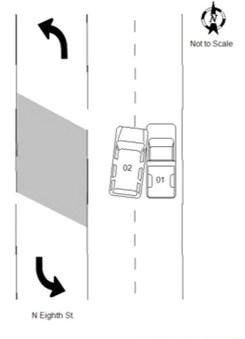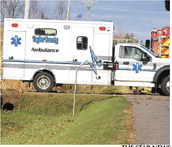Medford schools look to pay current debt off early


Early payoff of $1.7 million will save taxpayers about $42,000 in interest
Being aggressive in paying down debt will be a payoff for school district taxpayers.
At Monday’s Medford school district finance committee meeting, finance director Audra Brooks brought forward a plan for the district to pay off an additional $1.7 million in existing debt to the point where the district will pay off its current debt service by 2023. She estimated this would save the district $42,000 in interest.
Brooks compared the repayment to having a mortgage. While you have a set mortgage payment each month, many homeowners choose to pay more than the minimum amount and therefore reduce the payments and interest amount.
In recent years, rather than decreasing the portion of the tax rate going to debt service, the school board has kept it level as part of an intentional effort to pay the debt off faster.
Brooks also noted that an added advantage is that under state funding formulas, districts get aid partially based on what is spent. Retiring a chunk of the existing debt will give a boost in state aid to the district.
Brooks noted that, state aids exist as a pool of funds and that people in positions similar to hers around the state work to maximize how much of those funds come to their districts.
“We are all after that pot of money. We are in competition,” she said, noting the more the district gets in state aide, the less local taxpayers will pay on their property tax bills.
Committee member Steve Deml also noted that if Medford doesn’t get the aid, it will just go to a different school district.
Post retirement benefit
A change in employee handbook language will potentially save the district headaches over how much should be put into its post retirement benefits plan.
As part of its benefits package, Medford Area Public School District offers retirees who had been longtime employees of the district a benefit of money toward post retirement health insurance premiums. These fall under the umbrella of “other post-employment benefits” (OPEB).
The district sets aside money each year to pay for this benefit in a trust account that can only be used for those payouts. In recent years the district has expanded the number of employees eligible for the payouts. Every two years the district has an actuarial study done to determine if enough money has been set aside. While any retiree is only eligible for a set amount of money, under the actuarial study parameters, they automatically assume the individuals are staying on the district’s health insurance policy. Typically retirees do not stay on the district’s plan simply because it is more expensive in out of pocket cost than what they can get through other options especially since the retirees are responsible for the full cost of the premium.
This actuarial assumption impacts the percentage funding they consider the OPEB account to be at. Keeping the OPEB fully funded reduces the impact in any given budget year, while if it is funded at a lower level it potentially increases the district’s risk.
At Monday’s meeting, Brooks presented language to cap the amount of time retirees can stay on the school’s insurance policy to match the federal COBRA law, which is currently at about 18 months for anyone who retires after June 30 2026. This will allow for anyone approaching retirement to make plans related to the changes.
Brooks said this change will be taken into account during the upcoming study which will be done in the next few months. She noted that from the auditor standpoint, they were comfortable with the district being in the 65 to 70% range and said anything over 40% and the district would be in good shape.
Finance chairman Brian Hallgren has historically favored having the OPEB liability fully funded and expressed disagreement that 40% was OK. Hallgren has pushed for the district to increase the amount they set aside in the budget to go into OPEB.
Brooks said she is hopeful that at the end of the budget year they will be able to do that, but also noted the change in the handbook language will reflect the actual liability based on the history of the district rather than the estimations based on retirees staying on the school insurance indefinitely.
“I have always been in favor of a change,” said board president Dave Fleegel, noting that in reality the retirees are not staying on the district’s insurance.
With the recommendation from the finance committee, the full board later that night also approved the change in the handbook language.






